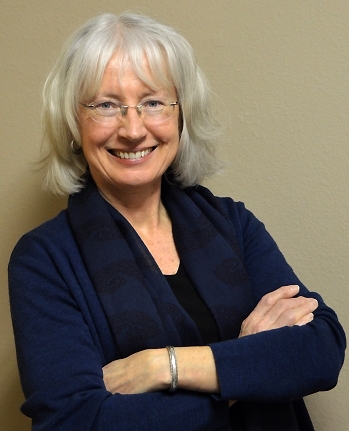 Help With The Hard Stuff
Help With The Hard Stuff
My last column introduced “third-sider” roles that might help you with the hard stuff. I also asked you to think about how a lawyer might help you prevent an escalation of conflict.
When there are latent tensions, intervention may prevent the tensions from erupting into violence. Many say prevention is the best intervention, and Ury suggests three prevention roles: Provider,Teacher, and Bridge-Builder.
Cross the threshold of these three opportunities, he says, and there is destructive conflict, violence and war. Note: My effort to place lawyers into each role may not fully satisfy, but bear with me, please.
The goal is for us to think of different ways we can use lawyers other than the conventional uses commonly shown in the media. I’ll talk more about the reasons why about this later in the series, but – spoiler alert – at core is the fact that there are radical, even revolutionary changes happening right now in the legal services profession.
You will want to know and understand some of these changes and how they affect your choices in getting help from a lawyer.
Okay, “prevention”. Think of prevention as managing risk and avoiding legal troubles. Lawyers with their professional skills can help you do that.
It might seem counter-intuitive, bringing a lawyer into a tense situation, but the key is in how you bring one in. Do you bring the attorney in to fan the flames or to help in other ways? Do you know the difference? Do you even know that the difference exists? (And, remember lawyers are humans, too – does the lawyer know and care about the difference?)
Lawyers can give a lot of value in this interconnected, unstable, complicated world – they can be well-trained and well-practiced in accuracy and analysis, calmness and communication, logical reasoning, and creativity, to name just some of the traits and skills lawyers are associated with.
These traits and skills can be used in Ury’s prevention roles:Provider,Teacher, and Bridge-Builder.
Provider – Conflict usually comes from frustrated human needs, most basically economic, physical, cultural and political security. The provider helps people meet their needs. Lawyers can help you by opening doors to resources addressing all these needs that you can then use to help yourself. First, lawyers can advise you of a range of available options discussing their risks and benefits, and direct you to specific providers of services you need. Lawyers can also make applications for services or licenses for you where you don’t have the time or energy to do so. In effect, they can be project managers for your complicated problems. Finally, lawyers can give you respect for what your complicated situation is, bearing witness to the reality of the day-to-day and not so day-to-day injuries and indignities you face. That support can help you keep going.
Teacher – This means giving people skills to handle conflict. Your lawyer can advise you on the enormous costs (in terms of time, money and energy) of unnecessary fighting at times when you can’t see or think about anything but the fight ahead of you (I’m thinking here of contested matters that, e.g., involve a person’s most intimate life, such as a divorce, or children.) The lawyer can help you prioritize your goals within your means (time, money and energy), and help you stay focused on those goals. Help you not be diverted from your goals by your opponent’s efforts to get you off focus and efforts to escalate conflict. Remember, though, this requires you to talk with your lawyer about these issues, and you may well have to remind your lawyer about them, too.
In an odd way, lawyers can also help you gain greater tolerance. Lawyers by training and experience can usually see many more shades of gray on what is for some people a very bright line between black and white.
We can help you see some more of those shades. Honestly, truly, really, the “other side” usually doesn’t think they are so very “wrong.” Your lawyer might help you learn better how not to “demonize” the other side.
It’s hard to problem-solve with a demon. A lawyer may help you find ways that you can agree to disagree and move on to trying to find joint, workable solutions to the base problems.
Bridge-Builder – Here, building relationships across lines of conflict. While sometimes people distrust that lawyers know each other, honestly, that can help get work done.
Lawyers may be able to have genuine dialogue with the “other” attorney. (Again, lawyers are human, too, may be not.) Lawyers may also help you identify potential or actual adversaries, and help you talk with them in appropriate ways, be they husbands and wives, workplace rivals, or neighbors at odds.
Remember the third-side motto?“Contain if necessary, resolve if possible, best of all prevent.” Next column, we’ll look at “resolve if possible.”
Here’s the link to #1, Legal Process is All about Negotiation
Here’s the link to #2, Lawyers are Human, Too
Here’s the link to #3, Lawyers Can Be Quite Versatile
Editor’s note: Look for “Help With The Hard Stuff” every second and fourth Thursday of the month in the Los Alamos Daily Post.
Gini Nelson, JD, MA has been practicing law since 1983. She’s a member of the State Bar of New Mexico’s Law Practice Management Committee, and the State of New Mexico’s First Judicial District Court’s Access to Justice Committee. Views expressed in the column are hers and not necessarily those of these Committees. This column is providing public information through the auspices of the Los Alamos Daily Post at www.ladailypost.comand is not providing legal advice. Nothing in this column is intended to be an advertisement or solicitation of business. Ms. Nelson’s law office website is at www.gininelson.com. If you have questions that might be of general interest if answered in this column, please send them to column@gininelson.com. ©2013 Gini Nelson Law Office

